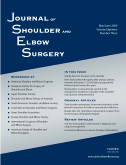
SHOULDER & ELBOW
Similar functional outcomes in surgical & conservative treatment of rotator cuff tear
J Shoulder Elbow Surg. 2015 Aug;24(8):1274-8156 patients with a degenerative, full-thickness rotator cuff tear were randomly assigned to receive either conservative treatment or mini-open repair in order to compare outcomes between treatment methods. Follow-up was performed for 12 months post-intervention. No significant differences were observed between overall groups in any outcome measure. In a subgroup analysis of the few patients with an intact rotator cuff (successful surgical repair/no re-tear), significantly better Constant-Murley score (CMS), Visual analogue scale (VAS) pain and VAS disability scores were noted compared to the conservative group. Nonetheless, the re-tear rate was high following mini-open repair in this study (~75%).
Unlock the full ACE Report
You have access to {0} free articles per month.Click below to unlock and view this {1}
Unlock NowCritical appraisals of the latest, high-impact randomized controlled trials and systematic reviews in orthopaedics
Access to OrthoEvidence podcast content, including collaborations with the Journal of Bone and Joint Surgery, interviews with internationally recognized surgeons, and roundtable discussions on orthopaedic news and topics
Subscription to The Pulse, a twice-weekly evidence-based newsletter designed to help you make better clinical decisions
Exclusive access to original content articles, including in-house systematic reviews, and articles on health research methods and hot orthopaedic topics
Or upgrade today and gain access to all OrthoEvidence content for just $1.99 per week.
Already have an account? Log in


Subscribe to "The Pulse"
Evidence-Based Orthopaedics direct to your inbox.
{0} of {1} free articles
Become an OrthoEvidence Premium Member. Expand your perspective with high-quality evidence.
Upgrade Now












































































